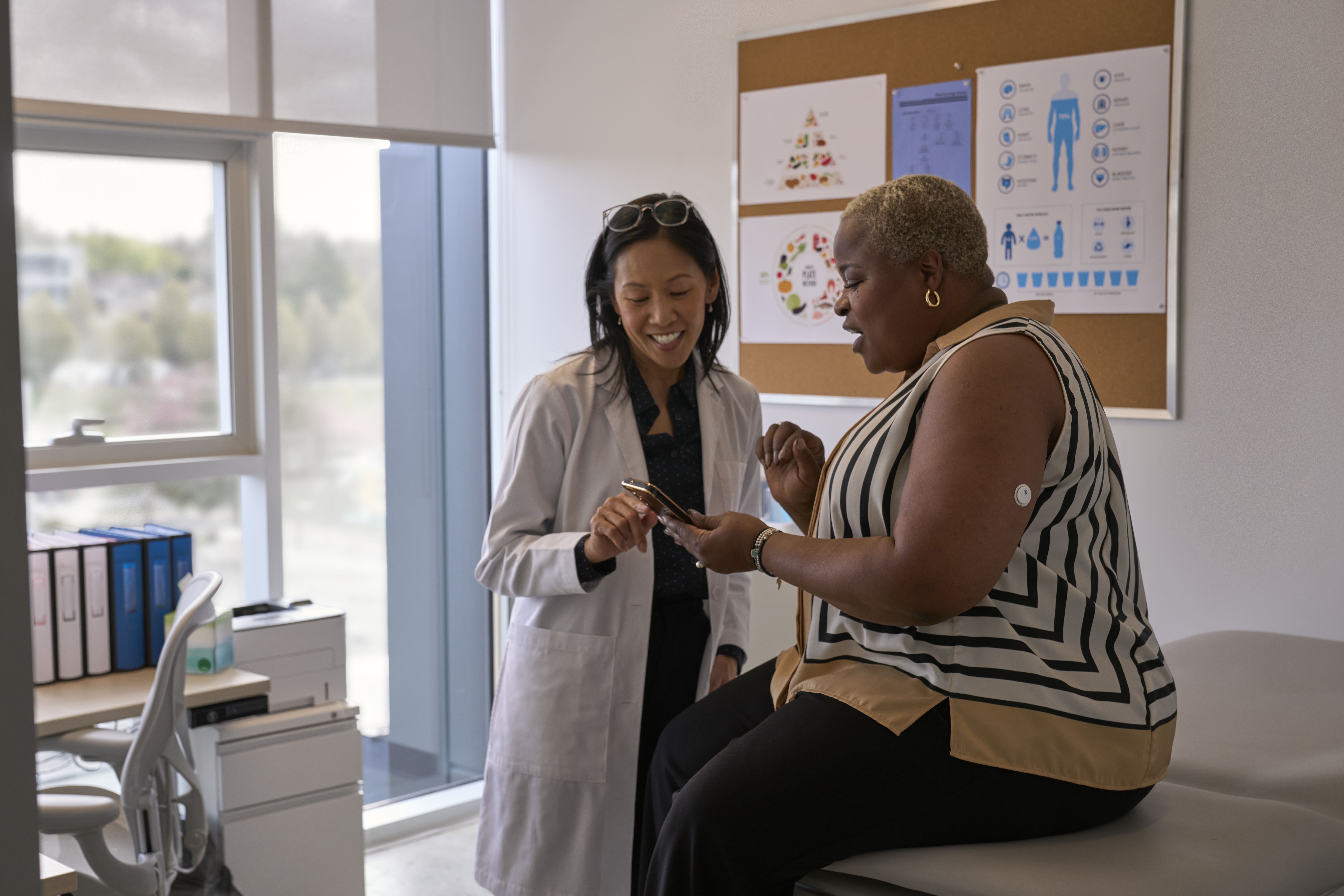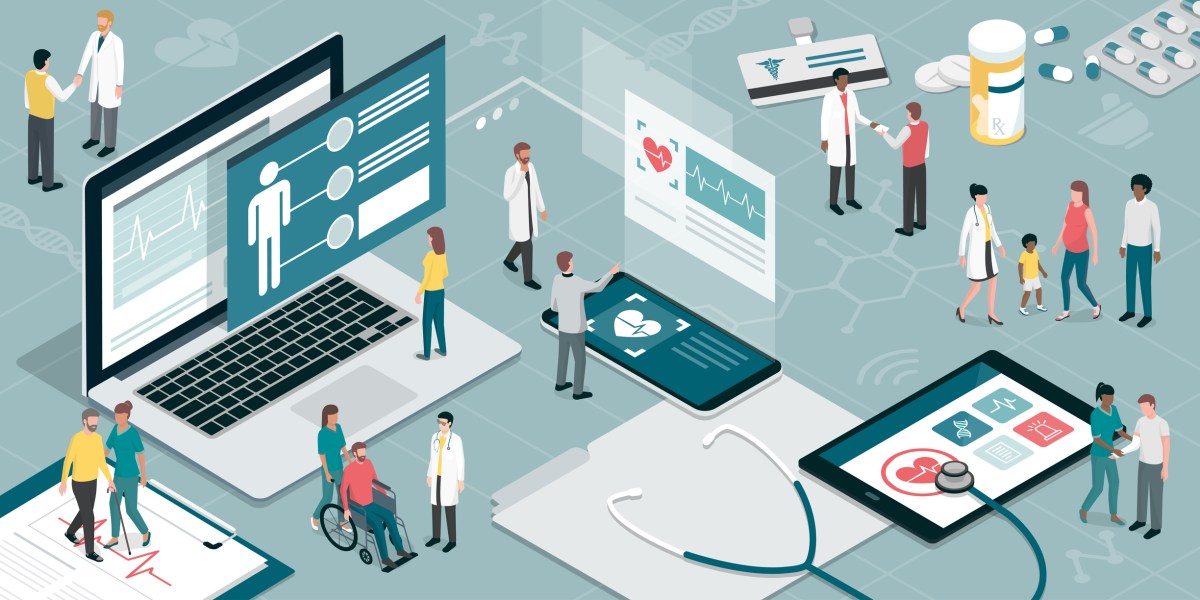- Digital MD
- Posts
- Top Healthcare IT Insights of the Week: Boosting Efficiency, Innovation, and Care
Top Healthcare IT Insights of the Week: Boosting Efficiency, Innovation, and Care

Happy Thursday! Can you believe July is almost over? Where did the first-half of 2024 go? Hope you enjoy this week’s newsletter. Let’s dig in.
Thank You to Our Sponsors
Latest Podcast Episode
ICYMI: In the latest episode of the Digital MD podcast, Dr. Liz Kwo sits down with Brian Urban, the Director of Innovation and Emerging Markets at FinThrive. Brian, with his extensive experience in exercise physiology, business administration, and public health, provides an in-depth look at how FinThrive uses AI and data analytics to enhance revenue cycle management in healthcare.
Featured Article
Top Insights of the Week
Clinicians in the spotlight
Lee Health physicians spend less time working outside of work hours thanks to GenAI for documentation
Generative AI restored the physician's ability to interact with the patient without technology affecting the conversation, and give the physician valuable time back both for patient experiences and personal opportunities, helping prevent burnout.
Why is this important?
Explains how clinicians experience improved efficiency and satisfaction due to improved note completion, reduced documentation errors, more time to document and how they can provide more attentive care and detailed consultation to patients and add one additional patient per day to their schedule.
Inspirational Pill
Northwell Health uses internal staffing resources to fill temporary positions
The challenge for Northwell was to integrate the internal resource pool alongside the management of temporary contract staffing agency labor on a single, unified workforce platform to streamline the sourcing and deployment of all temporary resources in one seamless workflow.
Why is this important?
Explains how the New York health system implemented a consolidated enterprise-wide platform to view and manage all open temporary positions and gain real-time insights into workforce trends, utilization rates, fill rates, time-to-fill, and quality of candidates, enabling it to make informed staffing decisions quickly.
Startups, therapies and devices
Abbott launched the smallest and most discreet sensor for continuous glucose monitoring in patients with diabetes
The circular device which can be worn for up to 15 days, is inserted just below the skin surface on the back of the upper arm, measures a patient’s glucose levels and sends the data to the patient’s mobile app and/or handheld reader every 60 seconds.
Why is this important?
Explains how the device helps diabetes patients maintain optimal control of their blood glucose levels and reduce the personal burden of disease management.
From fitness trackers to lifesavers: The future of wearable health-tech
AI-enabled wearables are transforming healthcare by providing continuous, real-time monitoring of various health parameters such as ECG, oxygen saturation, number of steps, energy consumed, and heart rate.
Why is this important?
Explains how wearables empower individuals by putting them in control of their health. By monitoring health in real-world settings, at home, at work, or while asleep, these devices aid in accurate medical root-cause analysis and enable remote sharing of results with physicians.
Remote Patient Monitoring
Cleveland Clinic integrates its patient monitoring platforms with Masimo's Hospital Automation platform
This integration aims to equip clinicians with advanced decision support and develop new AI-enabled predictive analytics.
Why is this important?
Explains how Cleveland Clinic, running RPM programs serving 11 hospitals and providing intensive monitoring, 24/7 critical care nursing, and patient management will combine its vast clinical expertise with Masimo's AI-powered decision support tools, automation solutions, and monitoring devices to ease staff shortages, better standardize care, and promote intensivist- and specialist-led care.
AI, Digital Tools and Partnerships
Venture capital funding for digital health companies starts to stabilize. Startups raised $1.1 billion across 77 deals in the first quarter of 2024.
Why is this important?
Explains that the digital health sector shows signs of recovery after the investment fell back to pre-pandemic levels in 2023
Health tech startup Fabric acquires Walmart’s telehealth business
Fabric, formerly known as Florence, purchased Walmart’s MeMD to expand its products for employers and payers and better position the startup to compete in virtual care.
Why is this important?
Explains how Fabric purchased MeMD’s existing customers, lines of business, and the majority of its employees, which provides virtual behavioral, urgent, and primary care benefits for 30,000 corporate partners and five million members.
10 of the most exciting digital health startups of 2024, according to VCs
Although investments in digital health went up only 3% from the year-ago quarter, the start ups launched this year may be a sign that digital health is back on its track.
Why is this important?
Explains how AI-driven startups that are solving staggering administrative challenges in the healthcare system are dominating this top.
Amazon brings its medical services together under a single brand
The giant consolidates its clinic telehealth service into Amazon One Medical One Medical Pay-per-visit telehealth for more than 30 common conditions, like pink eye, the flu or a sinus infection.
Why is this important?
Explains how consumers gain more care options as Amazon One Medical operates more than 150 primary care clinics nationwide.
Survey
New technology may be developing faster than oncologists’ knowledge about the implications
A new study that asked 204 oncologists for their views on the rapidly developing AI tools showed that when their opinion would differ from AI treatment recommendation, more than one third (36.8%) of the respondents would present both options and let the patient decide which of the two paths to pursue.
It also indicated that 76.5% of the oncologists believe they should protect patients from likely biased AI tools (when, for example, a model was trained using narrowly sourced data), but only 27.9% of the respondents believed that they could recognize AI models that reflected bias.
Why is this important?
Explains why AI models need to be explainable by oncologists, the importance of patient consent in using AI for treatment decisions, and the oncologists’ strong belief that their professional role includes protecting patients from biased AI.
Thought Leadership
Michael Langer, co-founder of T-Rex Capital and a leader in the biotech and digital health sectors discusses “Mastering Time Management and Planning for an Efficient Lifestyle.”
This Week’s Poll ⬇️
This is the last week to vote!
Stay tuned for more content! Don’t forget to like, comment, and subscribe 😃












Reply